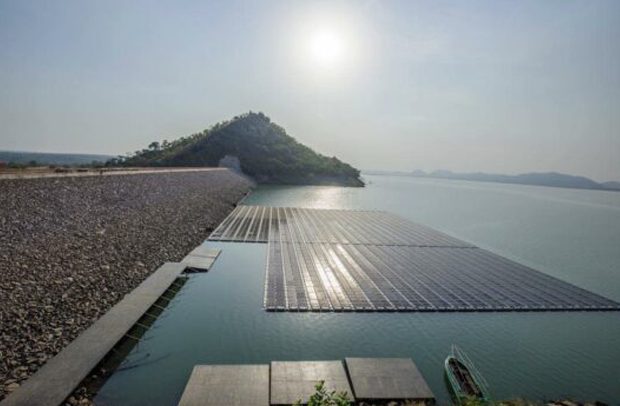The Bui Dam
The Bui Power Authority (BPA) has made significant strides in power generation using its Hydro-Solar Hybrid (HSH) plant feat which has triggered a sustainable progression of local industries.
Although the country has made significant strides in increasing electricity access to 86% – ranking first in Sub-Saharan Africa – the reliability and affordability of power remain ongoing challenges and Ghana still faces persistent power supply challenges.
To address these shortfalls, the Government of Ghana introduced policy interventions in 2019 aimed at boosting the utilisation of renewable energy and fulfilling its commitments to achieving Sustainable Development Goal 7 (SDG 7).
The key of these interventions was the government’s Renewable Energy Master Plan, which sought to among others, increase the proportion of renewable energy in the national energy generation mix from 42.5 MW in 2015 to 1,363.63 MW by 2030.
Through this, Ghana integrated some renewable energy solutions into its national grid which also includes a Hydro-Solar Hybrid plant at Banda in the Bui enclave.
The locals, whose primary occupation is cashew and sugarcane farming, rely heavily on the energy produced to operate the machinery required for planting, harvesting, and processing of these raw materials into valuable end products, such as sugar and cashew oil.
Among these is a cashew nut processing factory located within the Bui enclave called Bui Cash-U Factory.
“Through this factory, I have learnt how to plant, harvest and select the best cashew for processing,” said Afeke, a worker at the factory.
Cashew holds significant importance for Ghana, especially in terms of foreign exchange revenue.
Huawei’s Smart PV Solution extends beyond power generation. By collaborating with Meinergy, the owner of the cashew factory and the Bui Power Authority, the company seeks to provide industrial training for 800 locals in the cashew nut value chain business.
Speaking on the subject matter, the First Lady Rebecca Akufo-Addo indicated that, her office remains committed to working closely with industry partners and Huawei, to help bridge the gender divide and transform the lives of Ghanaians.
According to her, “the world is going green and projects such as the Hydro-Solar Hybrid plant fueling activities of a huge cashew factory at a rural town, is an indication that Ghana is on the right path towards the realisation of a sustainable and eco-friendly digital future.”
In harnessing the power of renewable energy, this initiative does not only address the nation’s energy challenges but also paves the way for economic growth, bringing hope to rural communities and empowering them for a brighter future.


